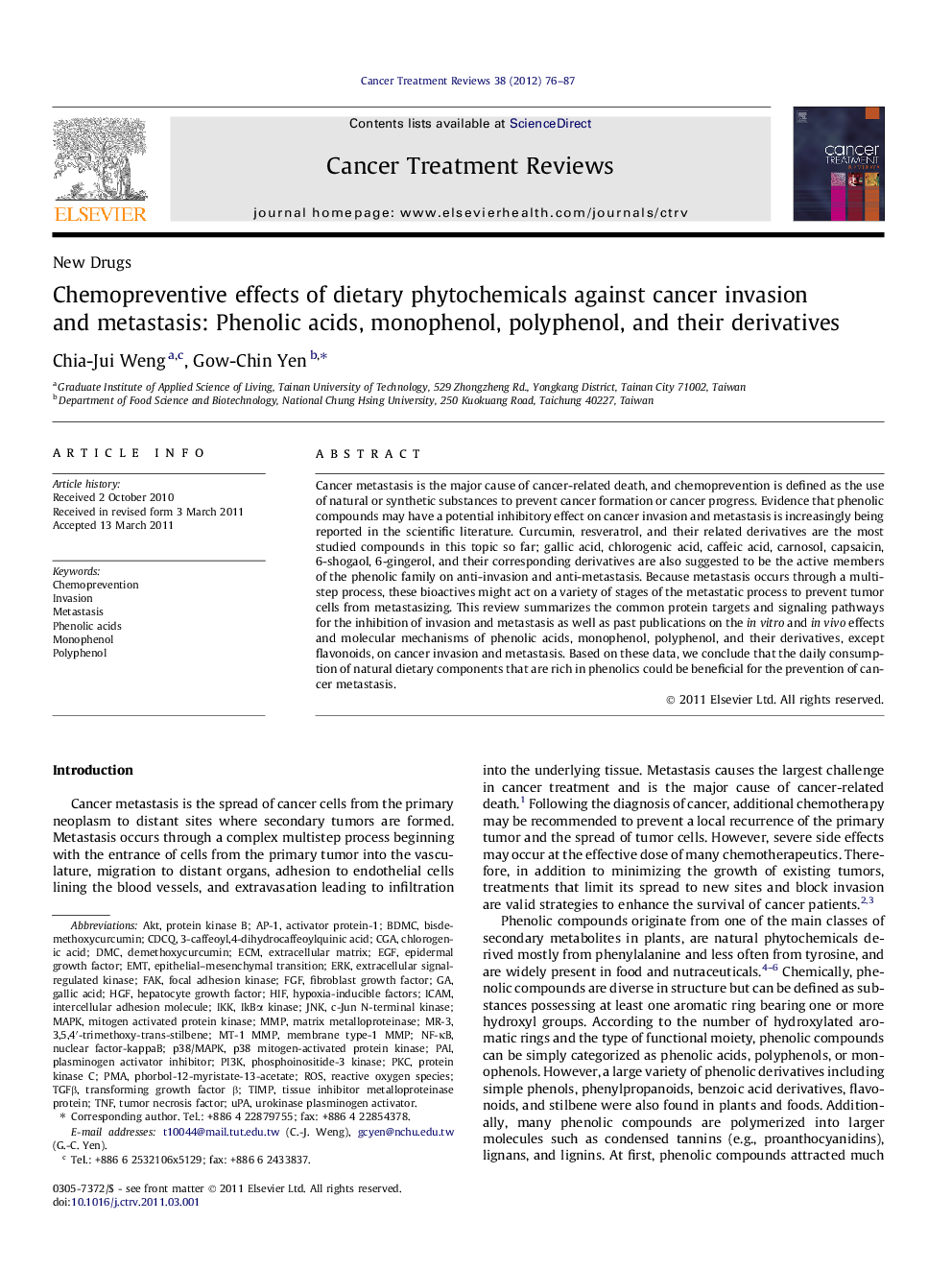| کد مقاله | کد نشریه | سال انتشار | مقاله انگلیسی | نسخه تمام متن |
|---|---|---|---|---|
| 3980310 | 1257426 | 2012 | 12 صفحه PDF | دانلود رایگان |

Cancer metastasis is the major cause of cancer-related death, and chemoprevention is defined as the use of natural or synthetic substances to prevent cancer formation or cancer progress. Evidence that phenolic compounds may have a potential inhibitory effect on cancer invasion and metastasis is increasingly being reported in the scientific literature. Curcumin, resveratrol, and their related derivatives are the most studied compounds in this topic so far; gallic acid, chlorogenic acid, caffeic acid, carnosol, capsaicin, 6-shogaol, 6-gingerol, and their corresponding derivatives are also suggested to be the active members of the phenolic family on anti-invasion and anti-metastasis. Because metastasis occurs through a multistep process, these bioactives might act on a variety of stages of the metastatic process to prevent tumor cells from metastasizing. This review summarizes the common protein targets and signaling pathways for the inhibition of invasion and metastasis as well as past publications on the in vitro and in vivo effects and molecular mechanisms of phenolic acids, monophenol, polyphenol, and their derivatives, except flavonoids, on cancer invasion and metastasis. Based on these data, we conclude that the daily consumption of natural dietary components that are rich in phenolics could be beneficial for the prevention of cancer metastasis.
Journal: Cancer Treatment Reviews - Volume 38, Issue 1, February 2012, Pages 76–87